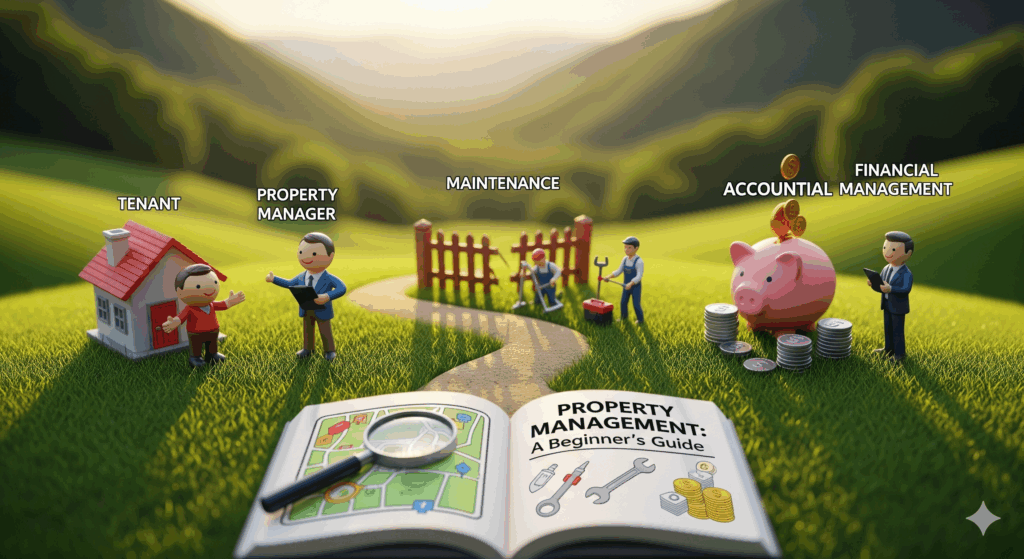
Property management is a dynamic profession that sits at the intersection of real estate, customer service, maintenance, and business operations. Whether you’re a first-time property manager, an aspiring real estate professional, or a landlord considering managing your own units, understanding the core responsibilities is the first step toward success.
This beginner’s guide breaks down the essential duties every property manager must master.
1. Tenant Management
Arguably the most people-focused part of the job, tenant management includes:
Marketing vacant units
Screening applicants (credit, background, and reference checks)
Onboarding new tenants with lease signings and move-in inspections
Handling tenant concerns, complaints, and requests
Enforcing lease terms, including noise rules, pet policies, and occupancy limits
Coordinating move-outs and managing security deposit returns
Why it matters: Tenant satisfaction directly affects occupancy rates, reputation, and profitability.
2. Property Maintenance and Repairs
A property manager ensures that the building is safe, clean, and operational at all times. Responsibilities include:
Scheduling routine maintenance (e.g., HVAC servicing, landscaping)
Responding to emergency repairs (e.g., leaks, electrical issues)
Conducting regular inspections
Overseeing vendors and contractors
Managing preventative maintenance plans to reduce long-term costs
Why it matters: Well-maintained properties retain value, reduce legal risk, and keep tenants happy.
3. Rent Collection and Financial Management
A key business function, this area includes:
Setting and adjusting rent prices based on market conditions
Collecting rent and issuing late payment notices
Managing delinquencies and eviction processes
Budgeting for operational costs and capital improvements
Reporting financial performance to property owners or stakeholders
Why it matters: A consistent and transparent financial process supports cash flow and property value.
4. Lease Administration and Legal Compliance
Leases are legally binding documents that define the relationship between tenant and owner. Property managers are responsible for:
Drafting, renewing, and terminating leases
Ensuring leases comply with local, state, and federal laws
Upholding Fair Housing regulations
Managing eviction proceedings when necessary
Keeping documentation organized and accessible
Why it matters: Legal missteps can lead to lawsuits, fines, and reputational damage.
5. Communication and Customer Service
Whether dealing with tenants, owners, maintenance staff, or vendors, effective communication is essential. Responsibilities include:
Keeping tenants informed through notices and updates
Communicating property performance to owners
Handling disputes and complaints diplomatically
Acting as a liaison between multiple parties
Why it matters: Clear, courteous communication reduces conflict and improves trust across the board.
6. Risk Management and Safety
Keeping the property safe and secure is a fundamental duty. Property managers must:
Identify and address safety hazards
Ensure compliance with fire codes, building codes, and insurance requirements
Prepare for natural disasters or emergencies (e.g., evacuation plans, backup power)
Why it matters: Managing risk proactively protects people and property—and reduces liability.
7. Technology and Record Keeping
Modern property managers must stay organized using digital tools. Duties include:
Using property management software for rent tracking, lease documents, and maintenance logs
Maintaining accurate records of financials, inspections, correspondence, and legal documents
Leveraging online platforms for marketing, applications, and communication
Why it matters: Proper record-keeping ensures transparency, compliance, and efficiency.
Final Thoughts
Property management is a balancing act of people, property, and process. It demands attention to detail, proactive thinking, and the ability to juggle multiple responsibilities. While the learning curve may seem steep at first, mastering these core areas provides a strong foundation for long-term success.
For beginners, the key is to focus on these fundamentals, seek mentorship, and stay informed through training and education. With time and consistency, you’ll gain the confidence and capability needed to thrive in this essential role.
